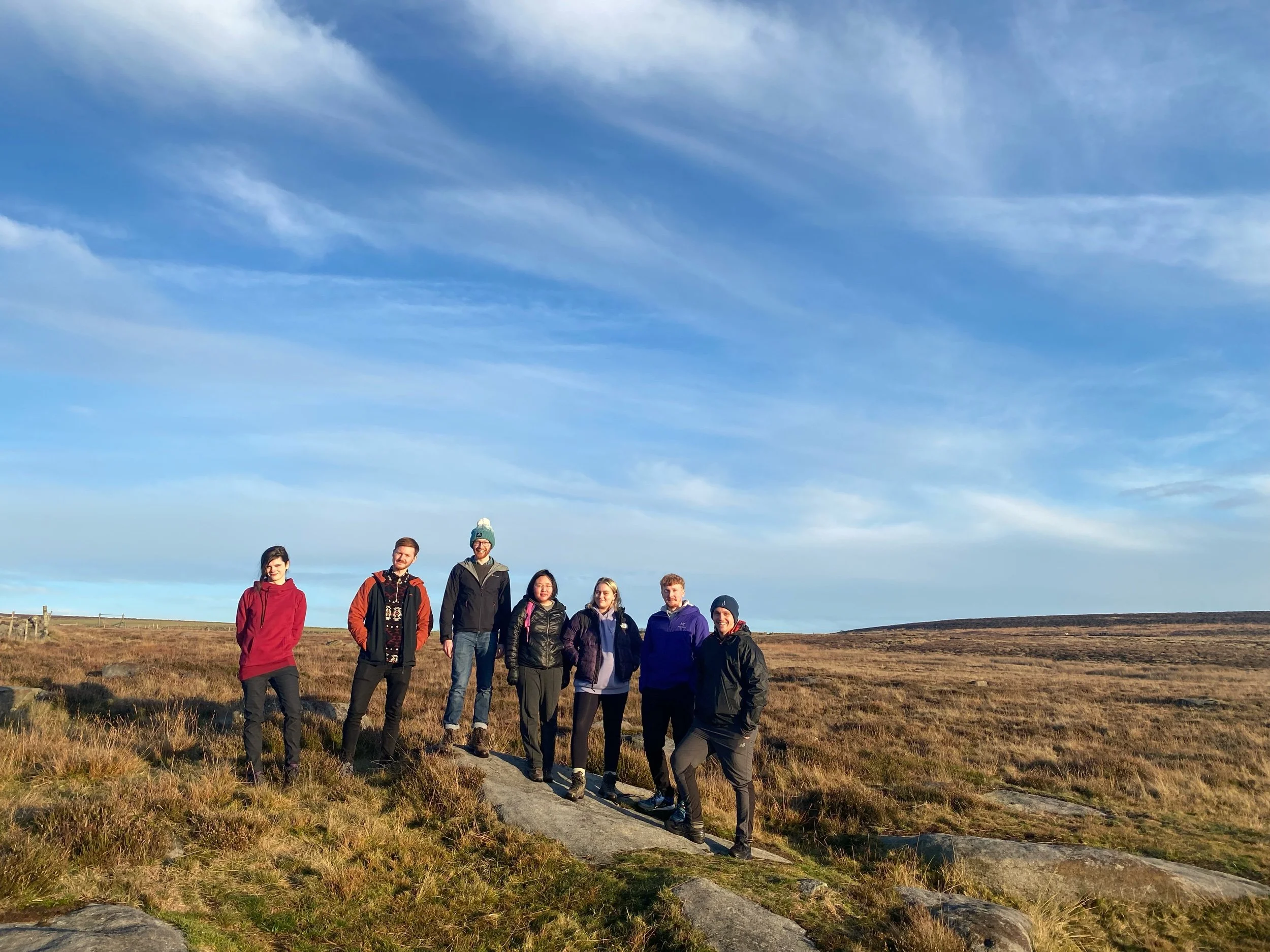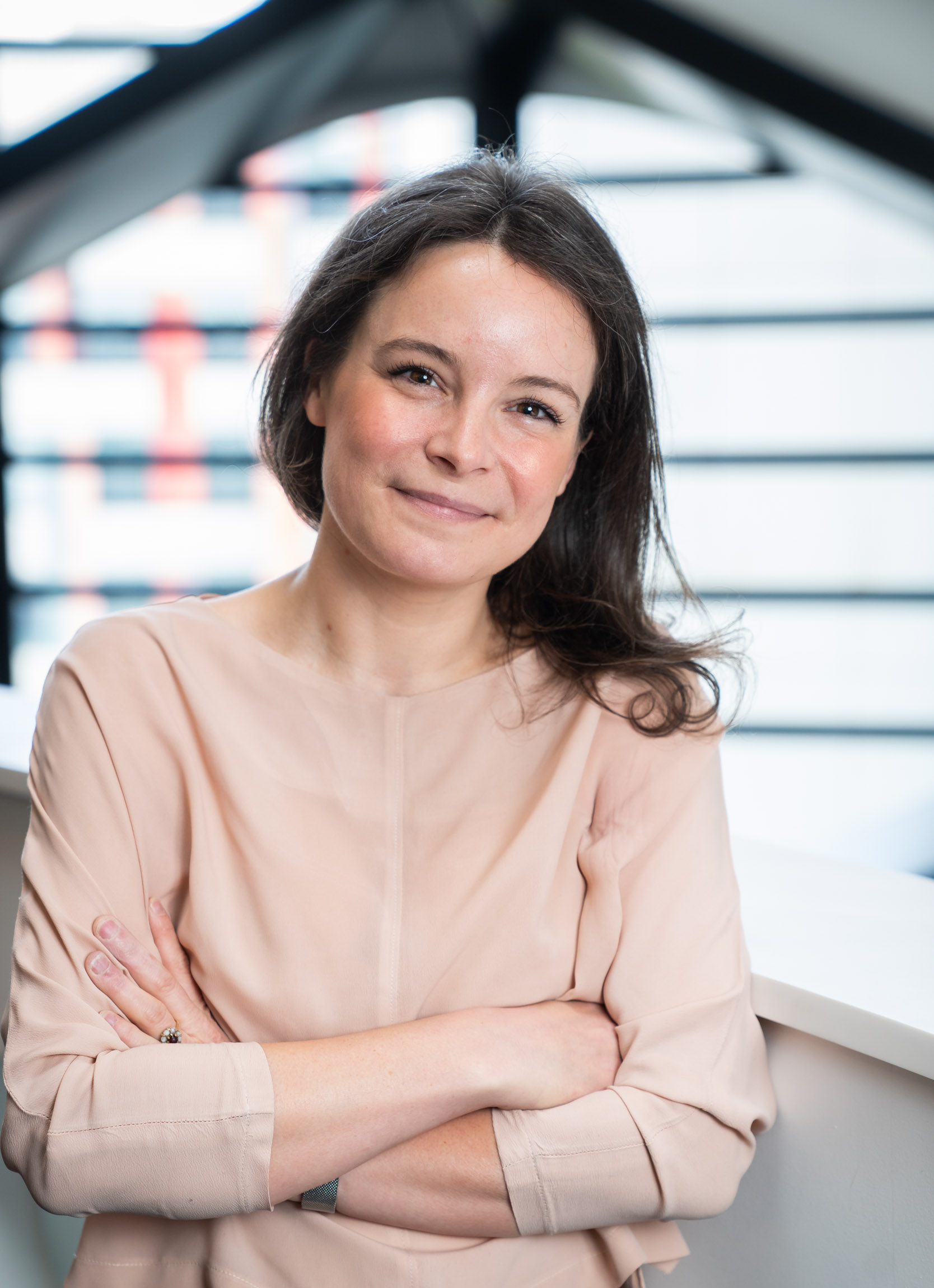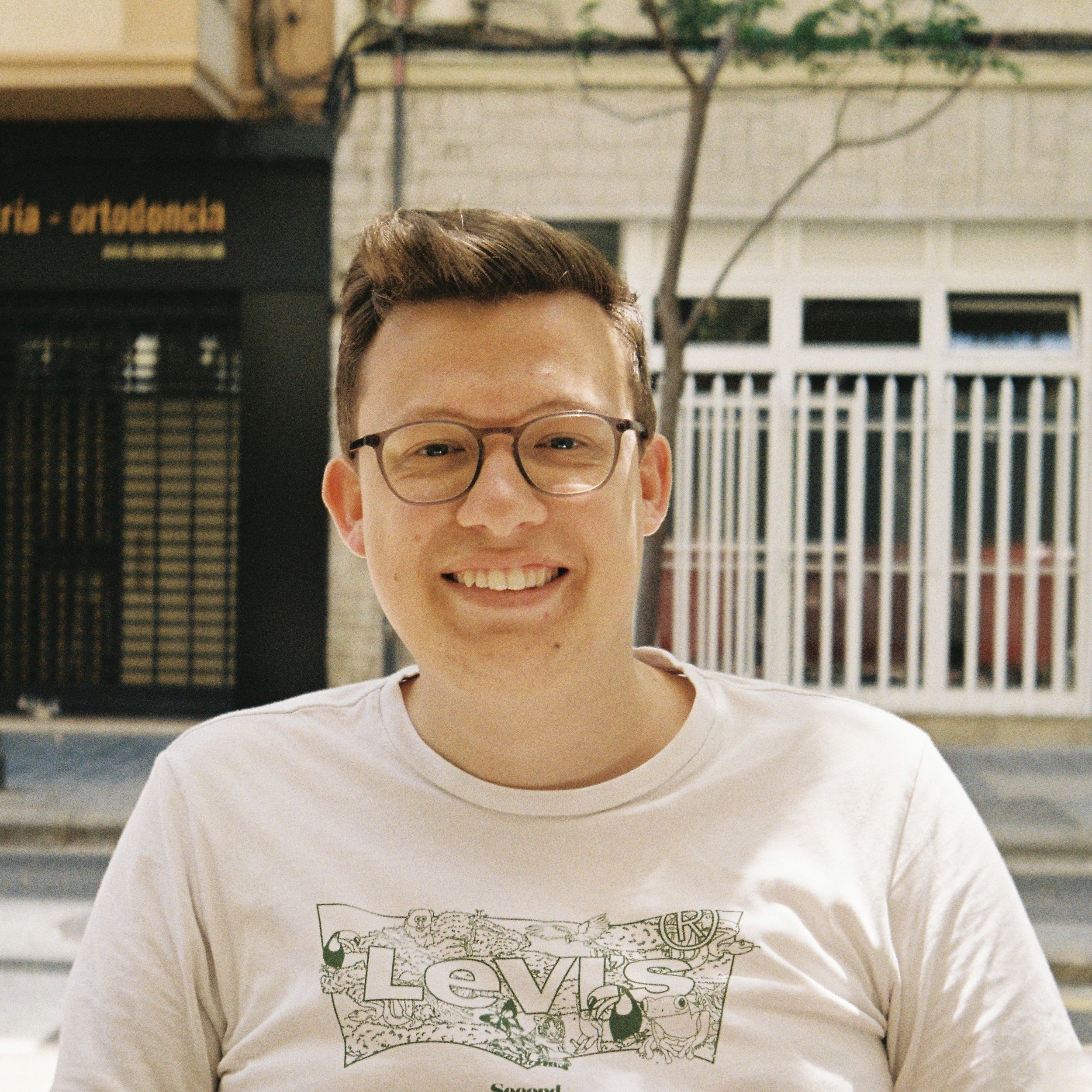Alice Pyne
Alice is an UKRI Future Leaders Fellow and Senior Lecturer in Soft Matter & Polymers at the University of Sheffield.
PosT- DOctorial Researchers
Tom Catley, experimental
Tom is a Postdoctoral Research Associate in the Pyne Lab at the University of Sheffield. His research is focussed around using and developing state-of-the-art atomic force microscopy (AFM) methods to uncover the effect of DNA structure and conformation on DNA-protein interactions.
Tom received an MPhys from the University of Sheffield in 2018, where his Masters project involved using atomic force microscopy to investigate the structural changes in the bacterial cell wall due to antibiotic treatment. He continued on in the Department of Physics to obtain his PhD in 2022, working on the development of novel antibacterial technologies based around nanostructured polymer surfaces.
Laura Wiggins, computational
Laura is a Postdoctoral Research Associate in the Pyne lab at the University of Sheffield. Her research aims to develop and apply cutting edge image analysis and machine learning methods to determine the role of DNA structure in DNA-protein interactions.
Laura obtained a BSc in Mathematics and Statistics at the University of York in 2018, where she gained a passion for data analysis and machine learning. She then switched over to the Biology department for her PhD project which involved the development of an open-source, automated tool for cell phenotyping called CellPhe.
PhD Students
Mingxue Du, computational
Mingxue Du is a PhD student with Dr Alice Pyne and Dr Robert Turner at the University of Sheffield. The aim of her research is to develop more automated processing, recognition and analysis methods for AFM images of DNA and other large biological molecules. She will also combine AFM images with molecular dynamic simulations in order to provide a better understanding of DNA topology.
Mingxue has been working with Alice since her Master’s, where she analysed the length distribution of major and minor axes for supercoiled DNA minicircles. She also has a BA in Natural Sciences from the University of Cambridge. Outside her studies, she volunteers with St John Ambulance as an event first aider.
Eddie Rollins, experimental
Eddie is supervised by Alice and Dr Chris Toseland at the University of Sheffield. He uses atomic force microscopy (AFM) to understand how topology, supercoiling and stress effects DNA interactions by observing local variations in the structure and dynamics of single molecules of DNA and associated proteins.
He has a MSci in Chemistry from the University of Bristol where his Masters project involved the synthesis and and characterisation of self-assembling peptides.
Libby Holmes, experimental
Libby is an EPSRC-funded PhD student supervised by Dr Alice Pyne and Prof Helen Bryant at the University of Sheffield. Her research observes the complexity of DNA, showing how AFM can uncover the stacking order of DNA strands to reveal the underlying topology. Additionally, she uses AFM as a high resolution, single molecule technique to observe how proteins involved in disease progression such as cancer, affect the structure and conformation of DNA, and how this can affect it’s mechanism of action. She has an MRes in Cancer Sciences from the University of Birmingham where she studied the use of small molecule inhibitors in Acute Myeloid Leukaemia, and a BSc in Biomedical Sciences from Newcastle university.
Max Gamill, computational
Max is an EPSRC funded PhD student under the supervision of Dr Alice Pyne and Dr Mauricio Álvarez. His research aims to improve analysis times and accuracy in characterising DNA minicircles by implementing and developing novel machine learning (ML) techniques, such as segmentation, to atomic force microscopy (AFM) images.
Max obtained an MPhys at the University of Leeds, where he applied and evaluated ML architectures for the 3D localisation of fluorescence microscopy T-Cell data for his Masters project.
Tobi Firth, experimental
Tobi is an MRC DiMeN DTP student supervised by Alice and Prof Helen Bryant. His research will use AFM to quantify the topology of DNA structures such as those formed during replication.
Tobi gained a B.Sc (Hons) in Biomedical Science from the University of Sheffield where he studied the role of E-cadherin in epithelial cell morphology and survival using Drosophila as a model. He went on to study for an M.Sc (Res) in Translational Oncology, analysing the difference between cancer associated fibroblasts isolated from oral squamous cell carcinomas. Tobi then worked for the Bone Cancer Research Trust as Senior Research and Advocacy Officer, managing grant calls, organising conferences and developing a patient and public involvement in research initiative.
Sylvia Whittle, computational
Sylvia is a PhD student using computational image analysis combined with deep learning methods and AFM to investigate the function and behaviour of telomeres, and their effect on the activity of shelterin.
Sylvia was previously a research technician in the group before starting her PhD, she developed image processing methods for the lab’s TopoStats image analysis software, making it as usable and open as possible for the community. She is interested in research software engineering, data science, and computational physics and has a BSc in Physics from Newcastle University where she spent much of her time modelling stellar evolution, quantum tunnelling in transistors and nonlinear dynamical systems.
Henrietta Smith, experimental
Henrietta is an EPSRC-funded PhD student supervised Alice and Prof Helen Bryant at the University of Sheffield. Her research will focus on using AFM to characterise DNA and protein structure, and their interactions under the influence of chemotherapeutics.
Henrietta obtained an MSc in the Molecular and Cellular Basis of Human Disease at the University of Sheffield, where she investigated the use of a peptidomimetic to inhibit FEN1 and exploit colorectal cancer-relevant synthetic lethal interactions. Prior to this, Henrietta gained a BSc (Hons) in Biomedical Sciences from the University of Sussex, exploring the extracellular vesicle-mediated communication between breast cancer cells and immune cells within the tumour microenvironment.
Research and Technical Staff
Neil Shephard
Neil is a Research Software Engineer at The University of Sheffield in the Department of Computer Science where he collaborates with and supports researchers to develop and improve software. You can find out more about his experience and activities here.











